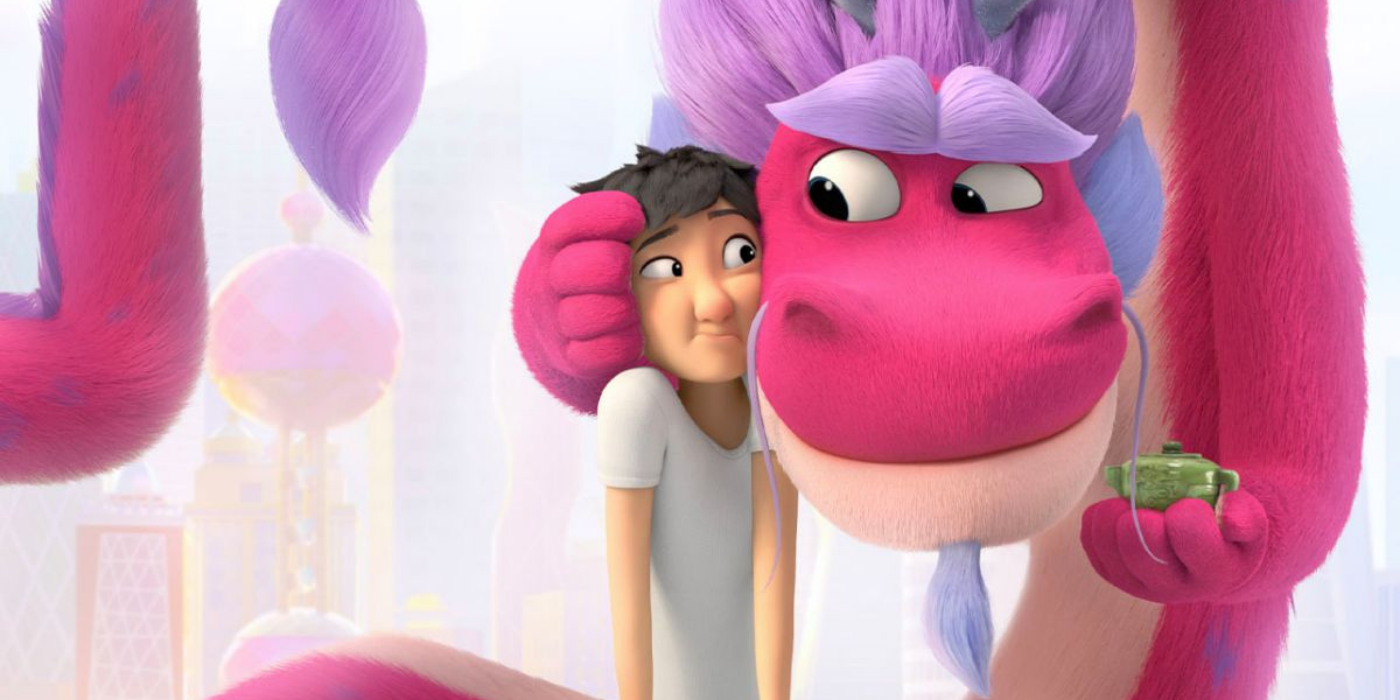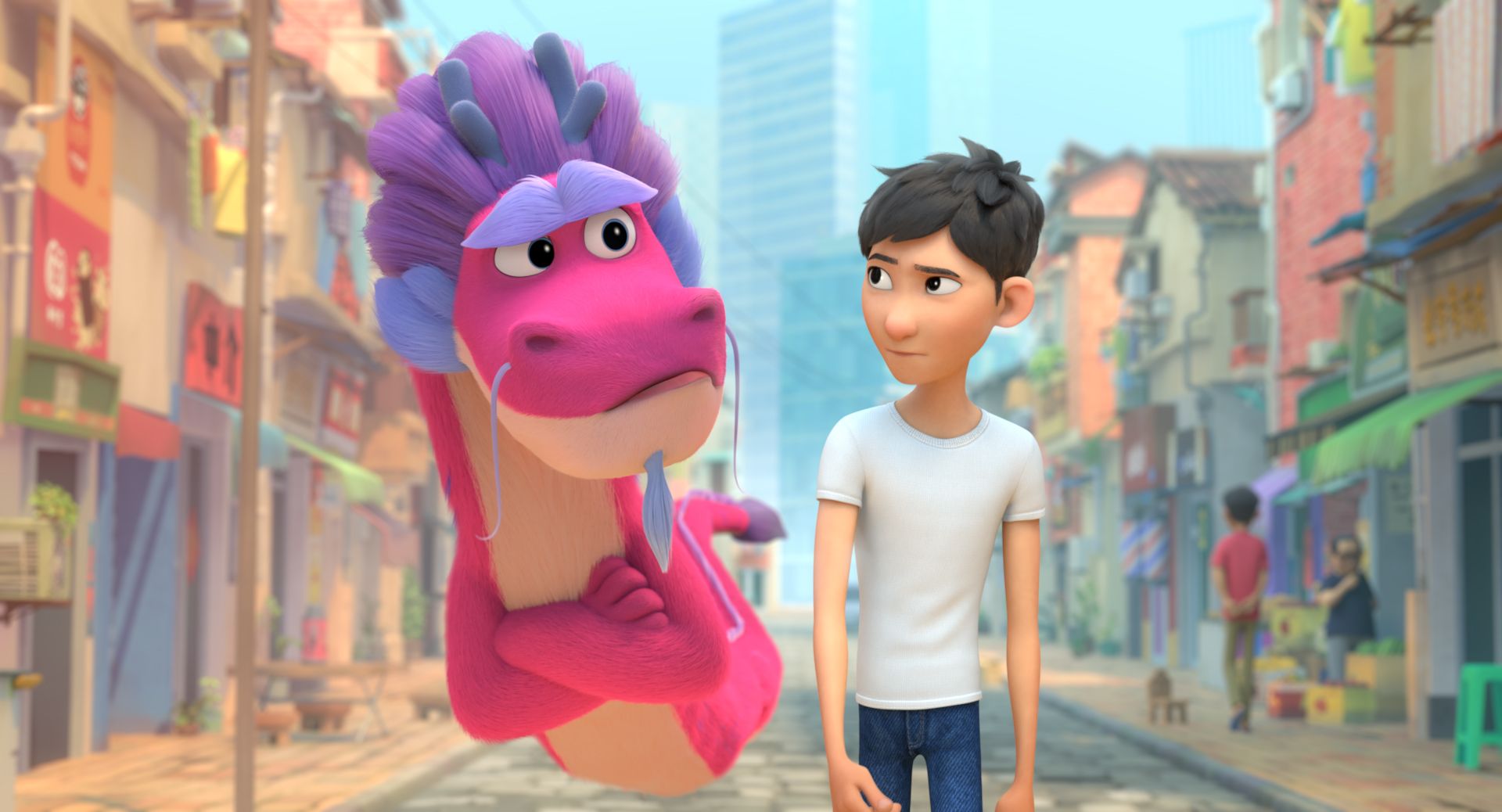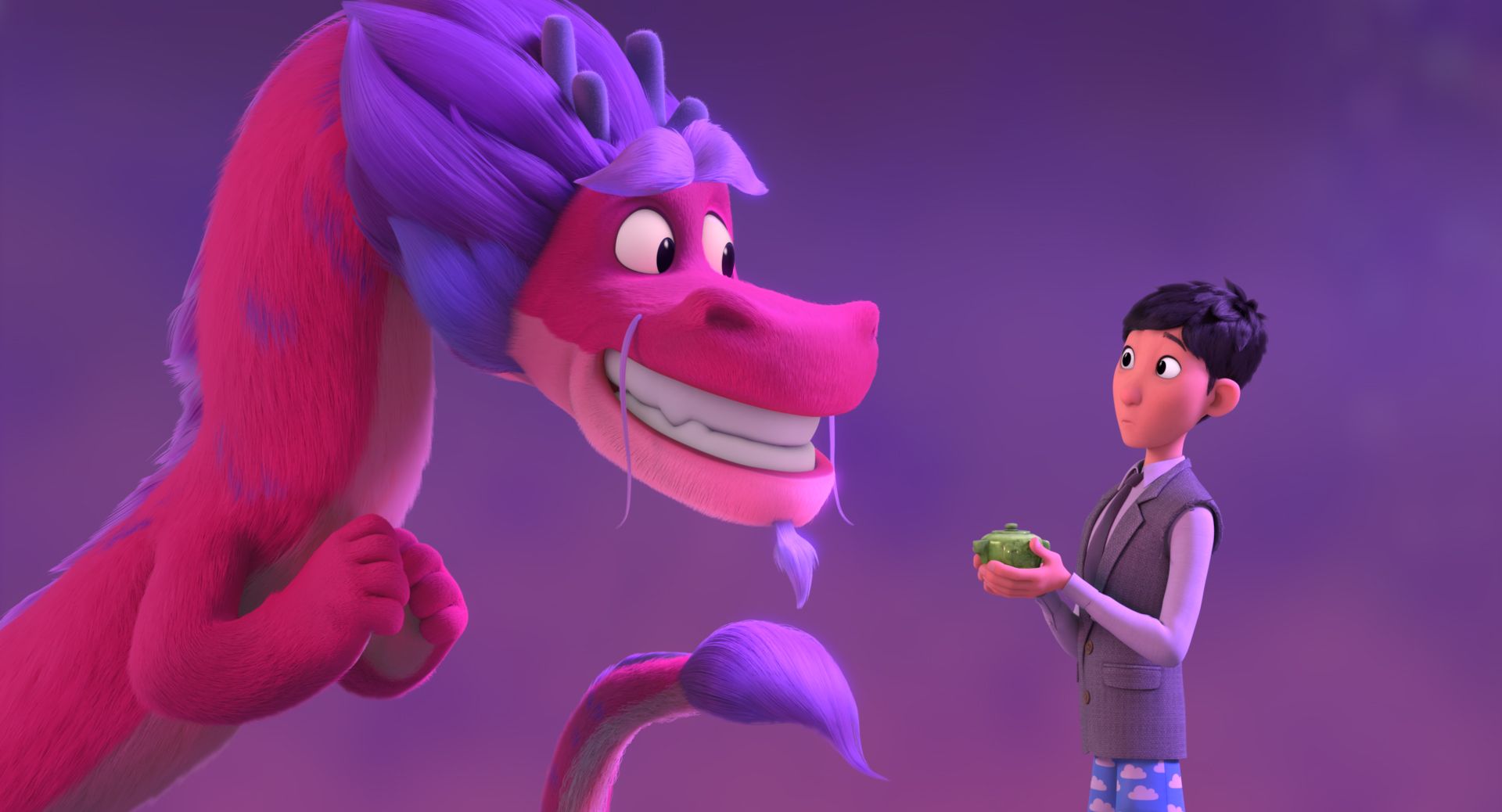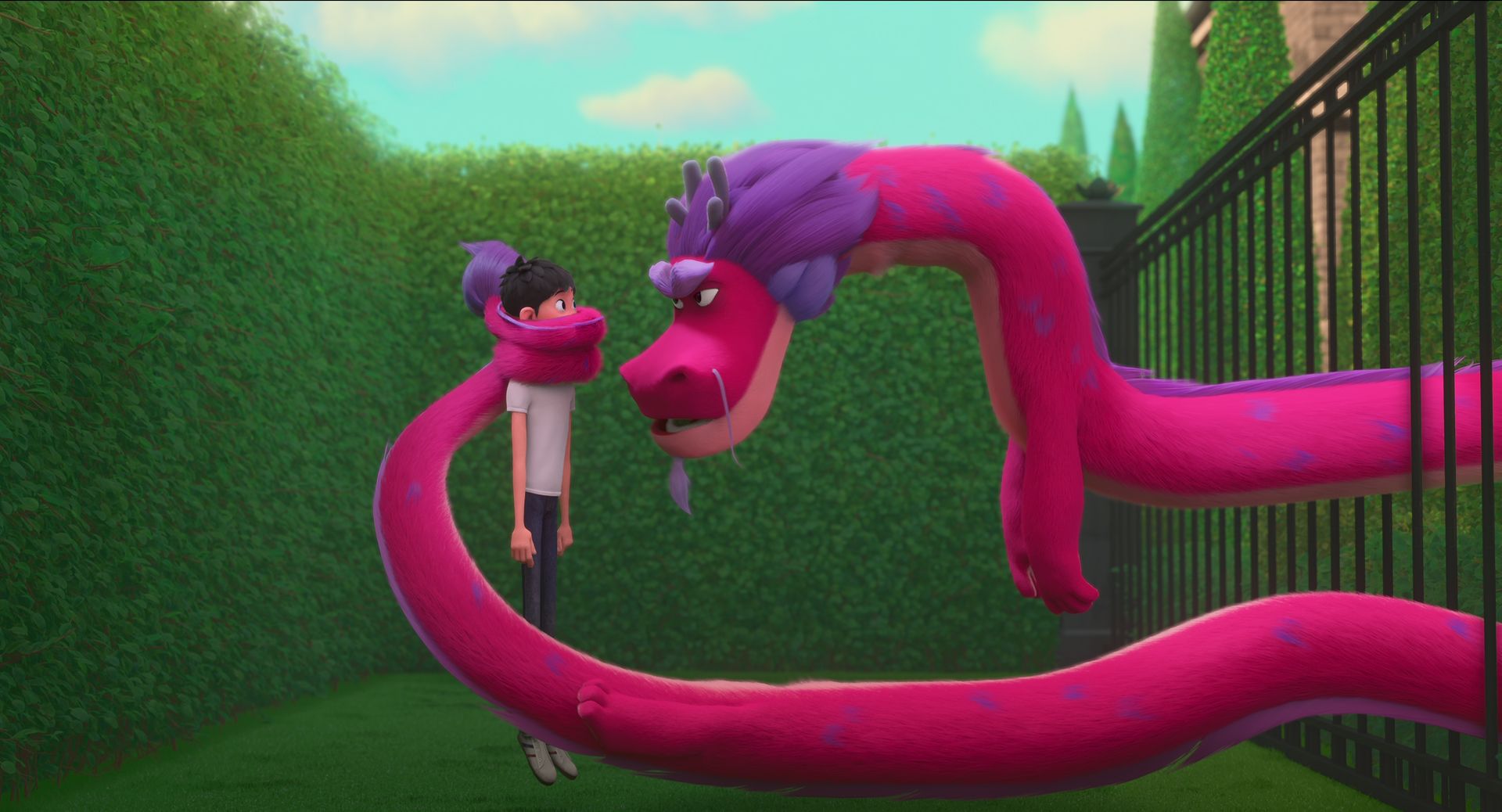Netflix's animated film Wish Dragon follows a teenager named Din meeting Long, a mythical dragon, who offers to grant him several life-changing wishes. Portrayed by Jimmy Wong, Din seeks to use his wishes to reconnect with his childhood best friend Lina; however, Din is being pursued through the streets of Shanghai by deadly figures looking to steal Long's magic. Directed by Chris Appelhans and co-written by Appelhans and Xiaocao Liu (who provided dialogue), the Netflix original film stars John Cho, Constance Wu, Will Yun Lee, Jimmy O. Yang, Bobby Lee, Natasha Liu Bordizzo, Aaron Yoo, Ronnie Chieng and Alexandre Chen.
In an exclusive interview with CBR, Wong discussed his personal connection to his character, the joy of starring in his first major animated role and the importance of the film joining the much-needed change in the entertainment industry to increase Asian representation.
Jimmy, what was it about this project that attracted you to become a part of it?
Jimmy Wong: I auditioned for this much like many other things I do as an actor: You walk into a room or you send in a recording or a self-tape, you cross your fingers and hope it happens! And when I actually got the role, I looked into the crew and who was directing and producing it. Every step along the way, I was really surprised and taken aback by how fleshed out it all was and how awesome it seemed that everyone who was involved in this was really dedicated to bringing the authenticity of a movie like this to life in terms of the locale, the culture and the characters as well.
One of the things I love about this character is his relationship with his mom is something, very much, that I closely identify with because he has a lot of pressure on him to succeed, go to school and making a living and life for himself and his mom just wants the best for him. I think all those aspects combined make it really attractive and it was a really amazing experience to embody something like this because sometimes when you go in for an animated movie, you might be a fish or a puppet but, in this case, it was playing what felt like a real-life person and that was really awesome because I haven't seen a character like this embodied in an animated form before.
Was there a specific line or bit of stage direction that helped inform your performance?
I've played similar characters in the past, a happy-go-lucky, innocent, wholesome kid and I really give a lot of credit to the director Chris [Appelhans] who was able to pull out a performance from me that was in that same [mold] but carried genuine energy with it. I think that is something you'll see a lot in the movie when you watch it: This is not someone who is very sarcastic or trying to make a joke at someone else's expense. He really is genuine to the person that he is and the spirit that he embodies. That is something that really comes out through with what he says and how he acts during the movie but also the way that I was directed in the booth because had I not had that direction around, I think I would've taken it into a similar direction but it wouldn't have hit that exact same note of pure essence and spirit; that's something I'm really excited for people to see.
In working with Chris, can you think of any big examples where he really helped inform your performance?
There's a couple of scenes, not to get too spoilery about it, but [when] my character gets the angriest he gets in the whole movie, when I first did it, it was much more on the nose. I'm angry and loud and have this frustration boiling up inside of me and the way I say it comes out a certain way. Chris has a very soft energy to him where he was able to grab what I [saying] and give me a few notes and a couple of directional pointers and massage what I was doing into a way that wasn't just angry, it had elements of disappointment and envy and anger and frustration.
When it comes to portraying someone as an animated character, you don't have your face and body movements to show the world how you're feeling, you have to get it all out through your voice and the animation pairs up really well with that. That was a really good example when I did something as a sort of single-note and the director was able to find all the different colors within it and bring those out to the maximum, so what you see on on-screen is more than just a voice, it really is the embodiment of that character.
I've talked to actors who either find the recording booth intimidating or liberating. As an actor that's done both live-action and voiceover roles, where do you fall on that spectrum?
I think it's a little bit of both. For me, I found it really liberating to not have to do the old rigamarole of hurry-up-and-wait, which is where you hurry, get your makeup and costume on and get on set, get ready... And wait. Wait for a long time and, every single time the camera rolls, it requires 50-60 or hundreds of people sometimes to be ready and ready to go and when they say "action" you get a moment to do something and when they say "cut," it's reset and you have to wait a long time for it to happen again. The pressure that mounts in that time can be really intimidating for people.
When you're in the booth, if you say something incorrectly, you can stop, cough, take a drink of water and try that again and just redo it on the spot. There were times when I had to read a certain line 15-20 times just because I wasn't quite there and it was really comforting to know that I had all those takes to be able to do it over and over again. As someone who makes YouTube videos all the time, being able to stop and not waste film, just memory on a memory card, that was really liberating, especially since I haven't done that much voiceover before. Being able to have a lot of takes on something is something that I cherish.
With this movie being set entirely in China and produced by Jackie Chan, how does it feel to be part of this wave of increased Asian representation we're seeing in film and television?
It's pretty exciting to be a part of this period of history. Obviously, there's a lot of negative news especially concerning Asians but we've seen this trend for a few years now, ever since Lulu Wang jumped into the scene. Now we have Chloe Zhao and Minari and so many other fantastic projects, with real pedigree behind them and they're completely award-worthy. For me growing up, I was surrounded by Jackie Chan movies and kung fu movies, that was sort of the extent of Asian representation on-screen. We had a couple of other projects here and there but it really was few and far in between.
Being a part of this uptick in these movies that are more broadly representative is exciting, not just for me but for any marginalized group because, if you want to view [it] as a queue with every group looking for their chance in the sun, we're finally at a point where I think every single group out there is getting that chance, big or small. Seeing all these seeds being planted for the Asian communities, the trans community and the Black community is really, really awesome because Hollywood -- for me, when I first got here -- was pretty exclusionary in terms of not having the roles that you were looking for because they didn't exist yet.
Cut to ten years later and we're in this spot where people are able to go out there and make their own content and their own roles for themselves and get to be pioneers in every single field across the arts. For me, it's just really exciting to be a part of something larger and I think it's a sign that entertainment is moving towards a realm where we're going to get to see broadly representative stories all the time. And when you have more things, you get to put less pressure on each of those individual things. If there was only Shang-Chi coming out, everyone would be staring at it and asking if it is going to be good. But if it's Shang-Chi and five other similar-level projects, then you don't have to be super-critical of something because it's the only thing that exists. Now we get to have a broad spectrum of what is good, what is okay, what needs work and what is something that pioneers the field. That's the most exciting part: The more you get of something, the better it is for everyone overall.
In regards to that representation and you mentioned your character's mother, was there a bit of Chinese culture in the film that you can point to non-Chinese friends as a real-world example of the Chinese experience?
It does tie in a little bit to the mother. The character Din lives in a small, little apartment where all the neighbors live very close. They all know each other, watch movies together and they're always gossiping and talking to each other and are in each other's business. That, to me, felt very genuine, the really close connection to people and feel like they're family. [The movie] is set in Shanghai, which is a much more densely populated area than a lot of cities in America. I think people kind of lose out on that community feeling that you get from living really close to other people.
That's something I hope people can watch and take away from it, the really beautiful interconnected community, from people dancing in the square to the person selling food on the side of the street to people that live in the same apartment complex. It's something I think we a lose a bit in the more spread-out world of the United States that is really a core part of Chinese and Asian culture.
What are you most proud of getting to be a huge part of this project?
I'm just really proud to do something that is outside my comfort zone. I haven't done really any animated voiceover on this level before and it's something that I [would be] very, very happy to do more of in the future. It opened up my eyes for what's possible with animation and how far you can stretch the limits of imagination. I'm a huge fan of anime and I love cartoons so being able to be a part of something like that is something that I take a lot of pride in.
What is it about Wish Dragon that you think makes it stand out proudly from the rest of what's coming out?
Sony Pictures Animation has released a bunch of fantastic animated films, starting with Spider-Verse, which I think just changed the animation industry as a whole, and The Mitchells vs. the Machines was also amazing. It's really cool to be part of that lineup, the third offering in this line of IPs that have come out from SPA. For me, it's cool because Netflix is something that everyone around the world can watch, even during a pandemic if they don't have their theaters open around them. While I would love to see a movie like this on the big screen, to me, it's more important that more people get to see this movie and, more importantly, that they get a taste of another culture that they may not be as familiar with.
I think that the #1 thing driving a lot of the hate and anger in the world is just ignorance and a lack of understanding what other places in the world are like so it's much easier to throw hate or anger towards another region or race or because you just don't have a full idea what it is. I think movies give other places and people in the world an opportunity, even just in two hours, to get a taste of another culture, group and place in the world so that we can understand that we all really are the same at the end of the day. We're all just looking to find our own happiness and I think that the more we can do with that, in terms of entertainment, the better and more unified we can be as a people.
Just as a bit of a fun detour to wrap up, you got to be in the live-action Mulan last year. I was just wondering if you could speak about that experience?
Wong: That was a lot of fun! That was my first taste of a huge production movie. I'm really used to making things by myself in my apartment with a camera. Going from that to a set with 300 people are walking around, fully dressed in costumes, and there are five different units filming at the same time and thousands of people working on it was a really humbling experience. It also really made me miss the fact that I have a lot more control over what I did in the past and I think that's something that I really got to examine closely with myself. I love working as an actor and I love working on projects and where do I want to be, in terms of creation. Do I want to be a small pawn in a huge puzzle or do I want to be someone that has a little more control and autonomy over what I do? As an actor, you're often on the smaller side of things but I think there are lots of ways for actors to also empower themselves and find more power in these situations.
For me, that experience brought a lot more understanding about what I want as an artist and what I like and enjoy and am comfortable with. I do look forward to working on bigger projects in the future but, at the same time, I always want to make sure I stay close to my roots and allow myself to create what I genuinely believe in.
Directed by Chris Appelhans and co-written by Appelhans and Xiaocao Liu, Wish Dragon stars the voice talents of Jimmy Wong, John Cho, Constance Wu, Natasha Liu Bordizzo, Will Yun Lee, Jimmy O. Yang, Aaron Yoo, Bobby Lee and Ronnie Chieng. The movie premieres June 11 on Netflix.




